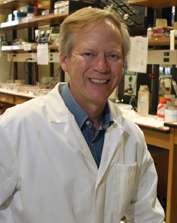Researchers explore energy, health potential of wastewater microbial ecosystem

An international team of scientists from the Translational Genomics Research Institute and the Luxembourg Centre for Systems Biomedicine has completed a first-of-its-kind microbial analysis of a biological wastewater treatment plant that has broad implications for energy recovery, human health and protecting the environment.
The study, published in Nature Communications, focused on lipids, which naturally accumulate on top of wastewater and can be converted into diesel fuel.
"Bacterial communities are everywhere, and understanding how they interact is critical to industry, agriculture, the environment and human health," said Paul Keim, director of TGen's Pathogen Genomics Division and Regents' professor of microbiology at Northern Arizona University.
The study's findings corroborate ecological concepts based on previous observations of forests, rivers and oceans, which cannot be experimentally investigated in depth because of their size.
Every wastewater treatment plant is a complex ecosystem because wastewater destined for treatment includes fats, proteins, carbohydrates and many other substances that serve as nutrients for the resident bacteria. Countless bacterial species adapt to the living conditions in the water, compete for resources and each find a niche in which they can best survive.
One species of bacteria grabbed the researchers' attention: Microthrix parvicella, whose genome sequence they first decrypted two years ago. This bacterium can absorb and store an especially large amount of lipids. In winter, up to 50 percent of all bacteria on the surface of treatment tanks belong to this species.
The study team's aim is to boost the activity of Microthrix to remove as many lipids from the wastewater as possible. The lipids from wastewater stored in the bacteria are a renewable energy source because they can be easily converted into biodiesel.
Lance Price, a TGen team member and study co-author, said such ecosystems research has important medical implications, as well.
"The human microbiome is a similar community of microbes. It dominates many tissues and organ systems through microbiome metabolism, interaction with human cells, and its ability to protect us against pathogens. The systematic analysis of the wastewater communities will lead to insights for human health as well as translational applications in sustainable energy."
More information: "Community-integrated omics links dominance of a microbial generalist to fine-tuned resource usage" Nature Communications 5, Article number: 5603 DOI: 10.1038/ncomms6603
Journal information: Nature Communications
Provided by Northern Arizona University














